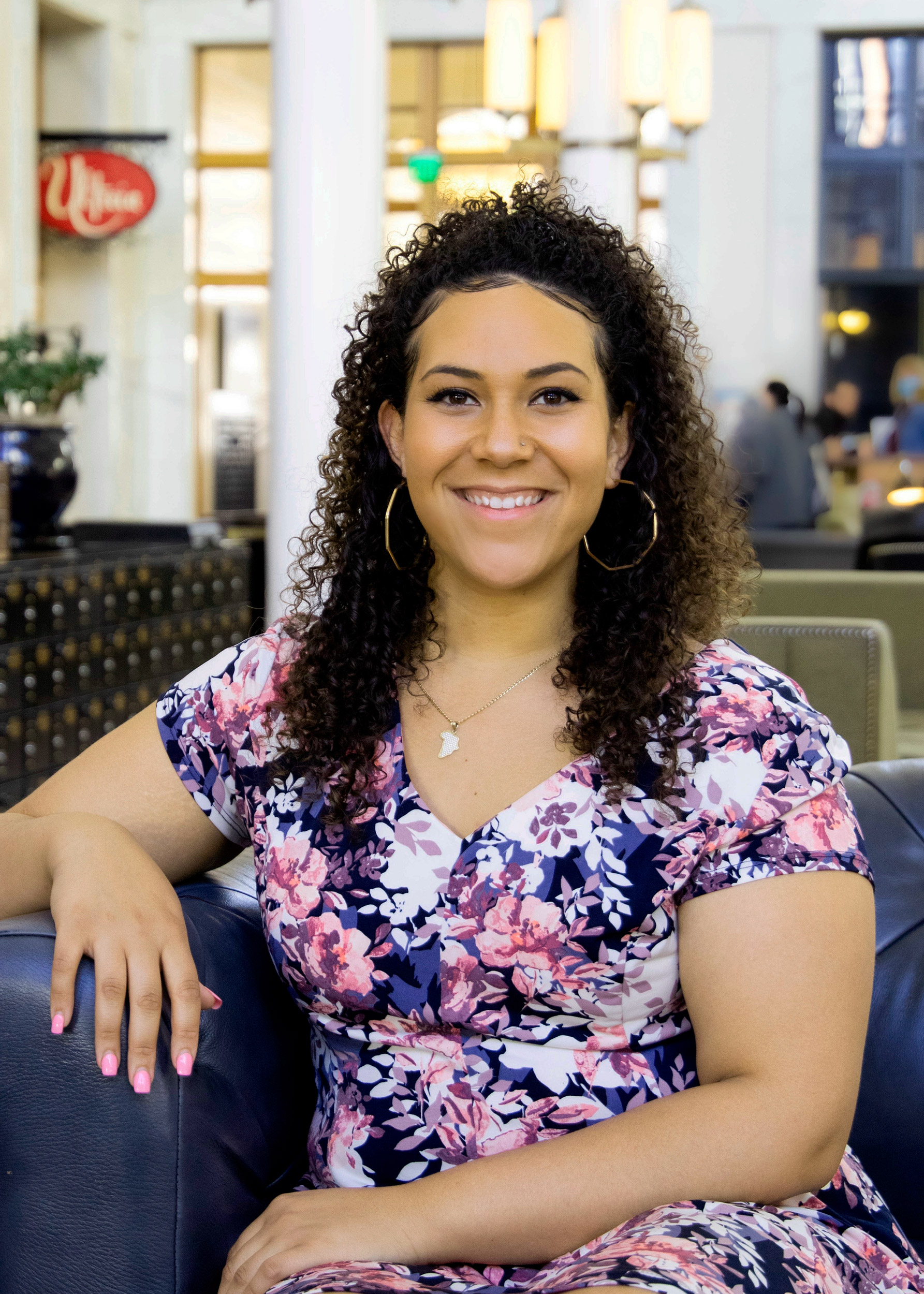Divine rights
Divinity School graduate Eboni Nash prepares for a career in liberation and activism

“I really want to advocate for a more humane criminal legal system, a more community-centered way of handling conflict,” said Eboni Nash
Courtesy Eboni Nash
This is one in a series of profiles showcasing some of Harvard’s stellar graduates.
Eboni Nash is a practitioner of liberation.
That’s how her friends describe her, and it becomes clear when you understand her work and passion.
Nash, who is set to receive her master of theological studies degree, came to Harvard Divinity School to study Black liberation theology and prepare for a career of activism around issues of racial justice and mass incarceration.
“I really want to advocate for a more humane criminal legal system, a more community-centered way of handling conflict,” said Nash, who began remote learning from her home state of Colorado when the pandemic hit. “Social justice has to do a lot with meeting people where they are, understanding where they come from, understanding what kind of resources that they have, and what resources they need to have to get to where they want to be.”
Throughout her time at HDS, Nash worked to develop an after-school program for children with incarcerated or deported parents. The program will also offer curriculum support for teachers and provide materials for parents and guardians to spur helpful conversations with children at home. She’s being considered for a fellowship that will get the program off the ground and connect it with the public school system where she lives.
“It’s for children who need a space, kind of like the space that I needed,” she said.
The program is personal to Nash. Her father was killed in prison when she was 9 years old. It took her years to begin to cope with the trauma.
“Going to college I went through this reconciliation and realization about all the trauma I went through as a kid and how it was the education system that really perpetuated this non-healing space for me that stigmatized everything that my life was about,” she said. “I started this journey of healing around what do I need to do to heal and what do I need to do to make sure other kids never have to go through that as well.”
Her family’s experience with incarceration wasn’t the only motivation for Nash as she worked her way through her degree program. She said she also brought along her accountable communities — people experiencing incarceration, children with incarcerated parents, marginalized communities, especially low-income marginalized communities, and communities that don’t have access to nutritious food.
“Those are all communities I identify very closely with personally, through lived experience and through my work,” said Nash. “So whenever I step into a space, especially a space as privileged as Harvard, I always think about who has shaped me as a person and who am I bringing with me. I like to make sure I dedicate that space to a community and make sure that I am intentionally present in those spaces for those people. It would be pointless to come to Harvard and suck up all this knowledge and not have an intention and someone behind the drive.”
Each class at Harvard opened a new window for her thought processes, especially around activism, said Nash. One of her favorite courses, “American Democracy,” reshaped her perspective on advocacy and activism.
“Before this course, affirmation as a way of deconstruction was something I never thought about,” she said.
During her tenure at HDS, Nash organized prison divestment efforts, served as social justice chair for the HDS Student Association, worked as the HDS Office of Student Life ambassador for diversity and inclusion, and led as vice president of events/organizing for Harambee, the HDS student organization for students of African descent.
As she readies to leave Harvard she’s preparing to return to her accountable communities and continue community-building and activism.
“With leaving Harvard I plan to come back to my accountable communities in whatever fashion that is and to share with them what I learned, the resources I acquired, and the networks that I’ve gained,” said Nash. “That’s now all theirs.”




